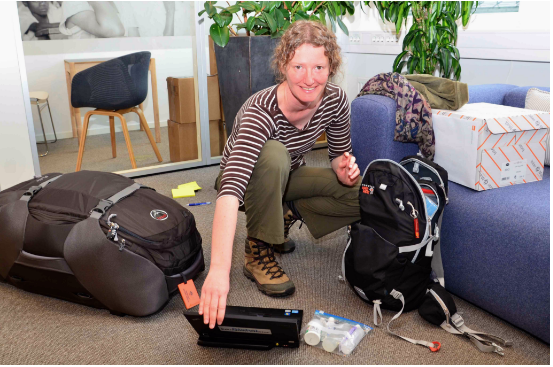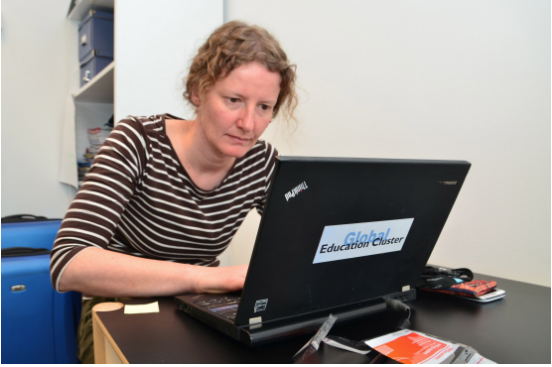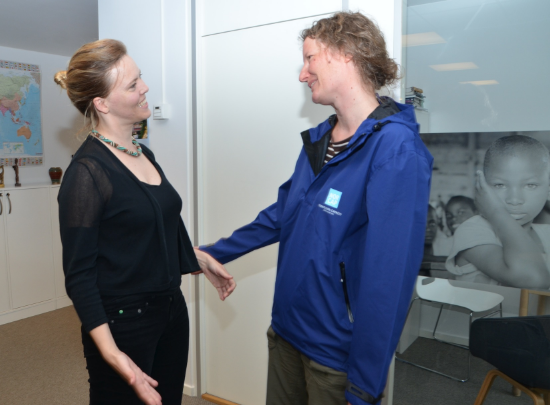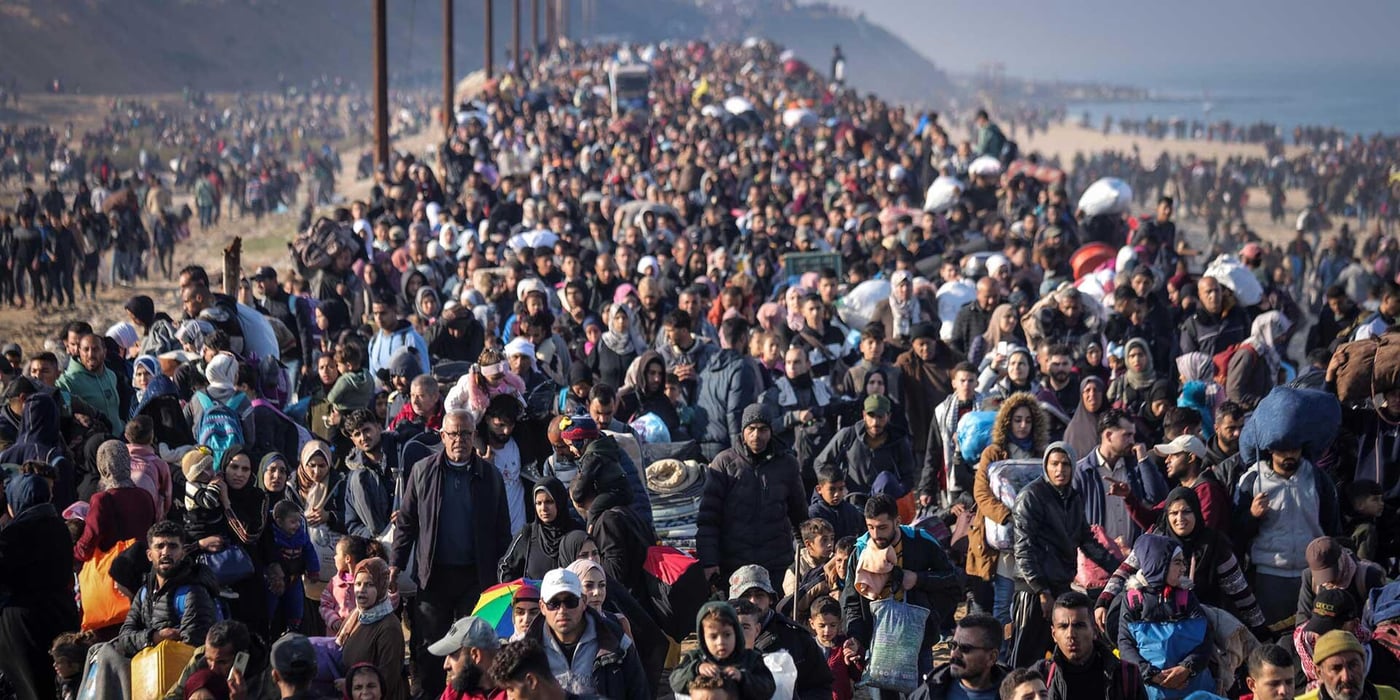
“Imagine if the earthquake had occurred on a regular school day with full classrooms and school buildings”, says Annelies.
According to UN reports 1383 schools were totally destroyed by the earthquake. “When tragedy happened it was better that it was on a Saturday morning when no children were in school, than on a weekday. To many children it would have been much more dangerous to be in a full classroom than at home when the earthquake struck. It would also have been much harder to reunite them with their parents in the chaos afterwards”, says Annelies.
Annelies is an expert on education in emergencies. Through NRC's standby roster NORCAP she is part of an international crisis team for education, put together by the UN and humanitarian organisations.

Annelies at the NORCAP/NRC headoffice for a brief, just a few hours before she went to the airport to go to Nepal. Photo: Hanne Eide Andersen/NRC
1.4 million children made homeless
She is always ready to travel on short notice to respond and to ensure that children in crisis areas as quickly as possible get back to school, that safe, child friendly spaces are created, and that the children receive the protection and psychosocial assistance they urgently need.
On Monday she travelled to Nepal to assist the Nepalese government and the UN in their efforts to get children in the earthquake-hit areas back to school as quickly as possible.
1.7 million children are affected by the earthquake and several thousand are injured. In addition, 1.4 million children have been left homeless, according to the UN.
“First we must collect data and get an overview of the extent of the damage to the educational system, the number of children affected and their needs. Then we must quickly create a strategy to give as many children as possible schooling under the prevailing circumstances”, says Annelies.
So far, all schools are closed until mid-May.
- We must create a strategic response plan that includes alternative school programs in camps for the homeless and displaced, and also figure out how to reopen the schools that are not destroyed by the earthquake.

Checking airtickets and the last humanitarian updates from Nepal. Photo: Hanne Eide Andersen/NRC
Prepared for chaos
The devastation of the earthquake has prevented rescue workers and aid from reaching many of the most remote areas. Rainy weather has also made rescue work and distribution of relief more difficult. Soon the annual monsoon could make even it worse.
It's a very chaotic disaster area she now travels into, but Annelies feels well prepared after having worked in several large, acute crises in recent years. Two months ago she came home from Liberia and the Ebola crisis. Before that she was in Syria and South Sudan. She has also lived three years in Nepal in connection with her doctoral thesis.
“All crises are different, but I think it will also be useful that I worked in Haiti after the earthquake in 2010. There are certain issues that will be the same now in Nepal””, says Annelies.
Vulnerable children in camps
For example, it is urgent to develop effective systems to teach the children what to do in case of aftershocks, and how to protect themselves in the situation they find themselves in now. Many live in camps under circumstances that increase their vulnerability.
“The teachers who are going to teach kids on these topics must be trained. We must construct alternative teaching facilities and activity areas in camps and other places where the schools are destroyed”, says Annelies, adding:
“And although some schools have not been severely damaged, they must be checked and secured well before they are re-opened.”
“As always in a crisis it is very important to get your kids into a school situation to safeguard both their physical and mental health. The school is an incredibly important arena to help children deal with the consequences of a disaster and to give parents time to take care of other needs after a crisis”, says Annelies.

Farewell chat with deployment adviser at NORCAP, Ingvill Haakaas Tveite at the NRC/NORCAP headoffice.



